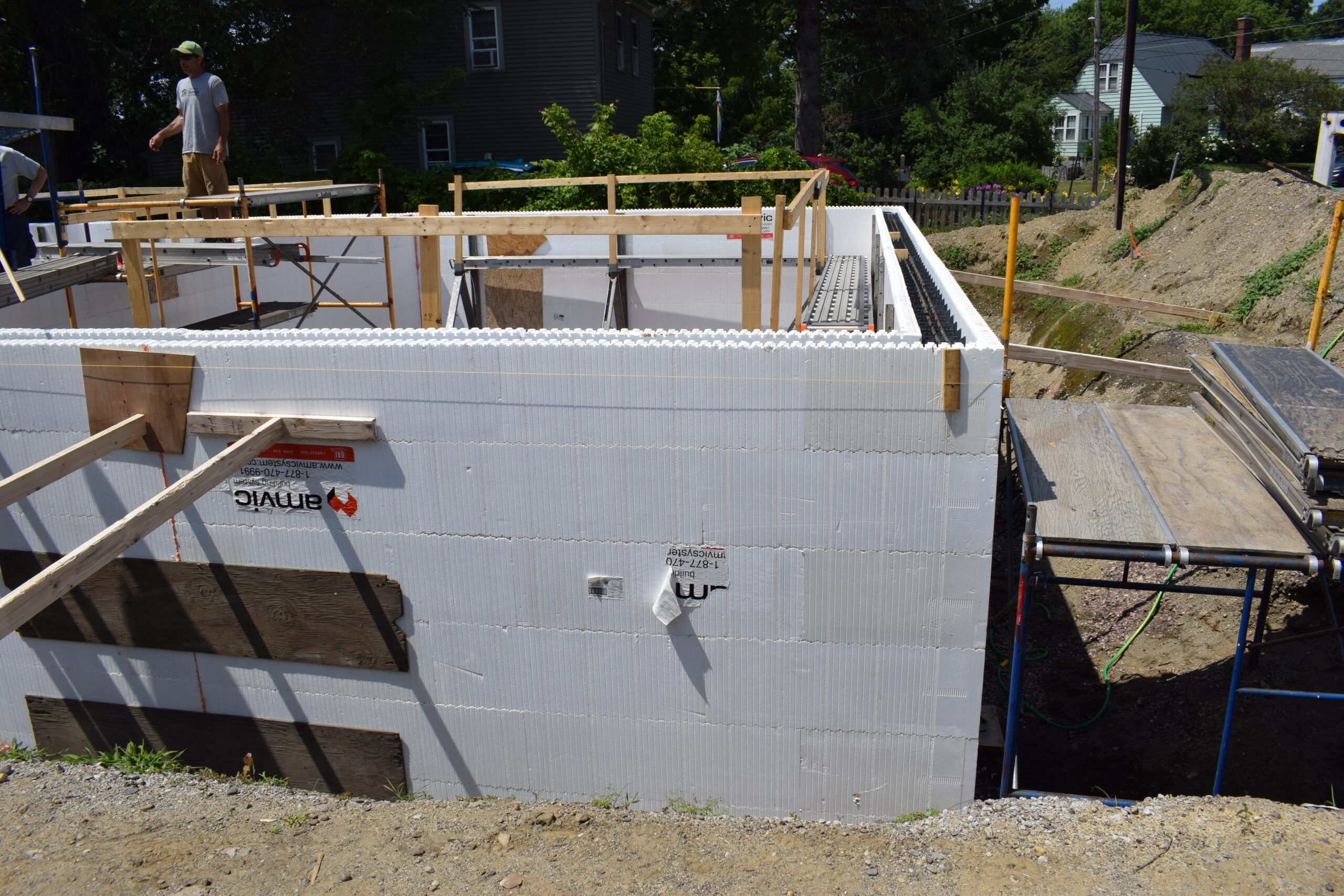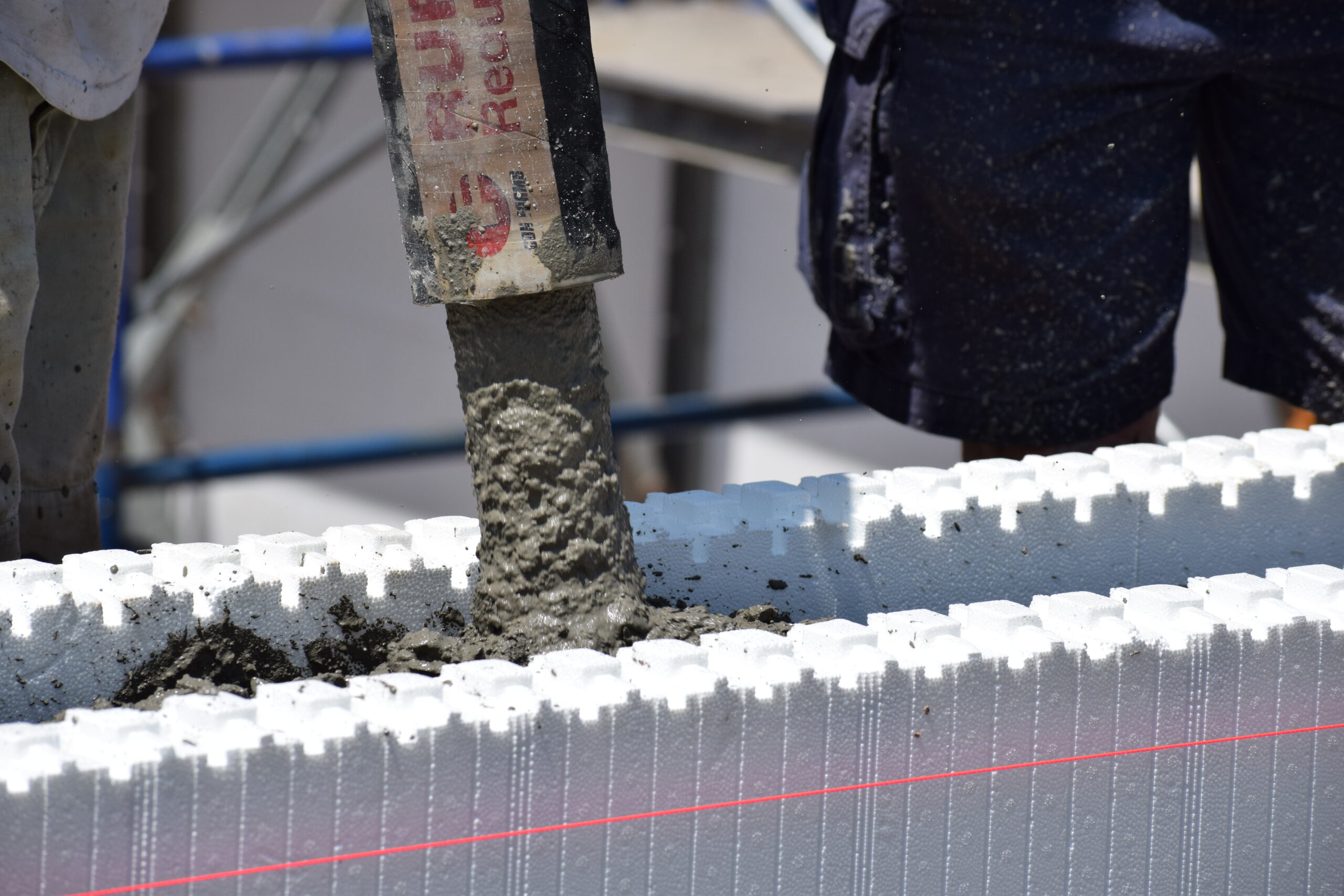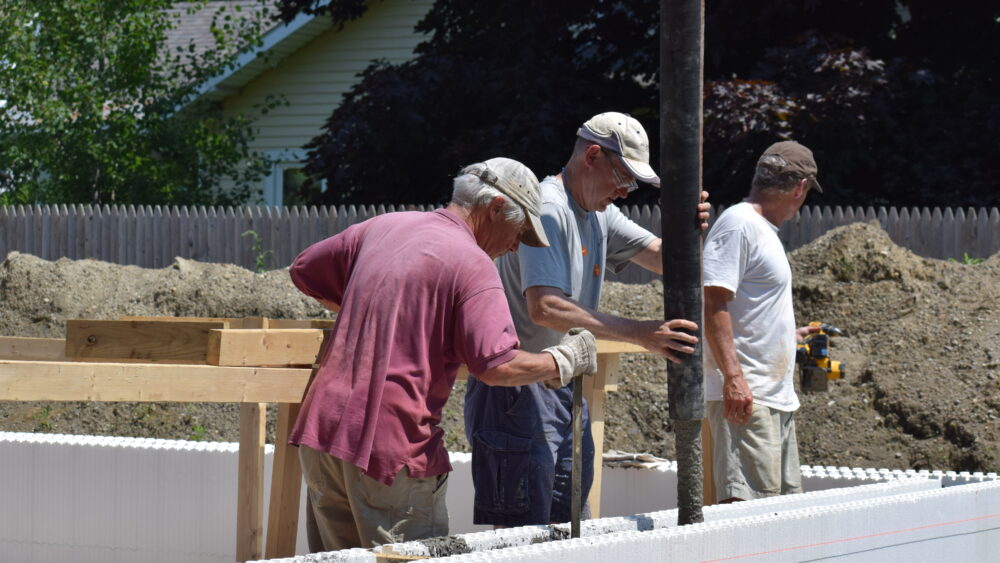At Green Mountain Habitat for Humanity, we are committed to building high-quality homes at high energy standards. One of the ways we achieve this goal is to build our homes is by using insulated concrete forms.
Insulated concrete forms are a type of construction material that is used to create walls within a home. They are almost like Legos: forms link together to form walls, and then concrete is poured into the forms to create a solid structure.
Reinforcing steel bars (rebar) are placed inside the forms before concrete is poured to give the concrete additional strength as well.
After the concrete is cured, the forms remain in place, and we add the drywall, electric, and plumbing to the interior structure to finish the basements.

Insulated concrete forms create the walls of the basement of this home in Winooski.
Benefits of IFCs
These walls are incredibly thick, thus creating three layers of insulation to protect the home from environmental factors.
This typer of construction is airtight, which prevents moisture and mildew from altering the structure of the walls. Traditional wood studs are more likely to warp and deteriorate than IFCs.
Additionally, IFCs help reduce the energy cost to heat a home. The thick walls prevent air from leaking out, causing the environment to be more easily regulated within the home.
Some estimates indicate that homes that use IFCS can save 20% or more on energy costs annually. Green Mountain Habitat’s goal is to build homes that our partner families can maintain, so building energy-efficient homes is important to us.
IFCs also assist us in the construction process. They are lightweight and easy to put together, so volunteers can help us construct our foundational walls with our Construction Project Supervisors.

Concrete is poured in the forms.
Ultimately, we chose to use these insulated concrete forms because of the various benefits in the construction process and for the homeowners. This helps us achieve our mission of building energy efficient, high-quality homes that will serve our homeowners.
If you have questions about our construction process, we will be happy to answer them! Feel free to reach out to our staff.


Comments are closed.